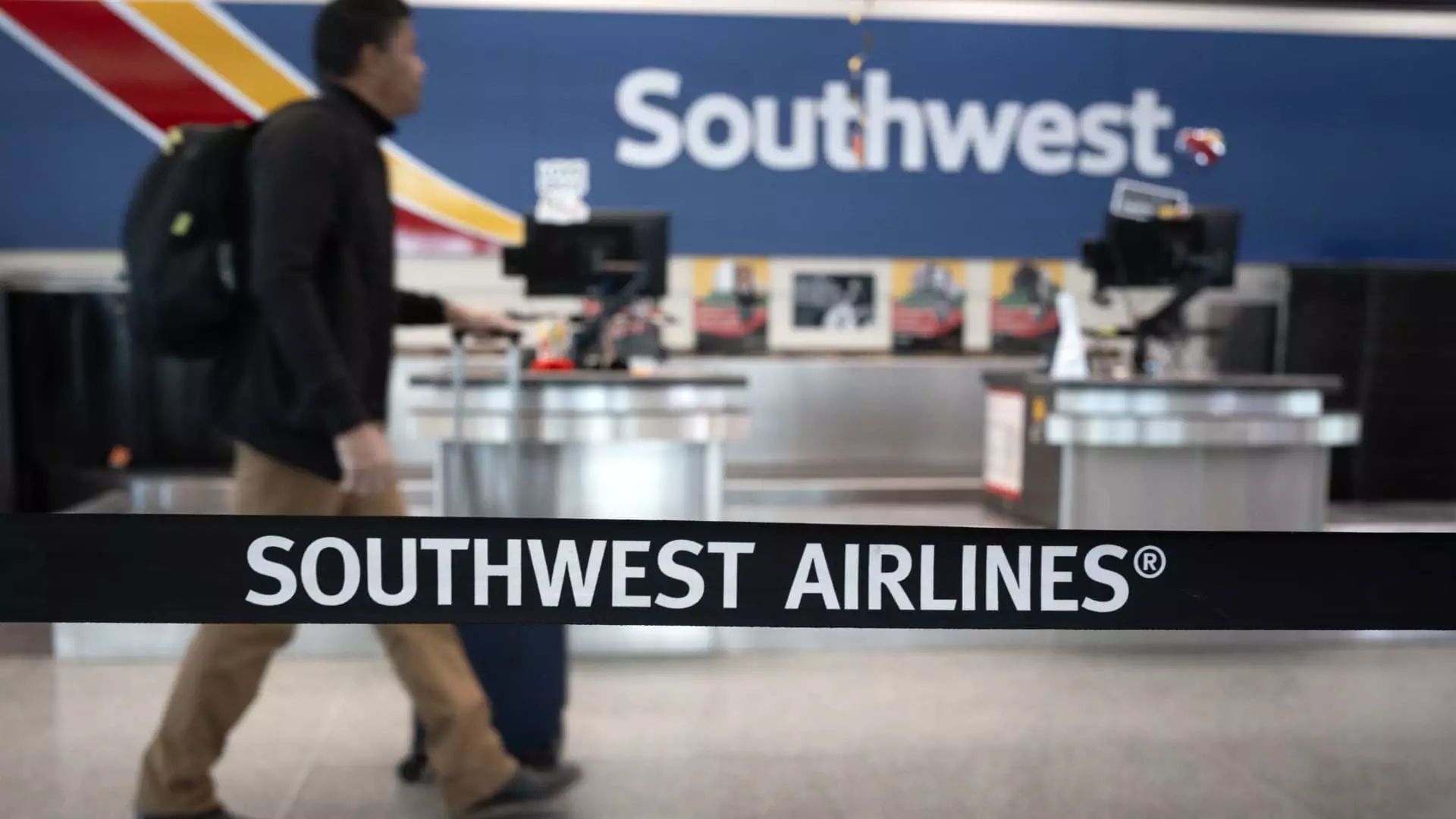For decades, Southwest Airlines has epitomized a customer-centric approach to flying, celebrating its identity with a steadfast commitment to the quote: “Two bags fly free.” This hallmark policy was not merely a business strategy; it was a promise. For many travelers, checking in without the fear of incurring extra costs was a ritual that contributed to the joy of travel. However, that carefree interaction with travel just suffered an unfortunate fate. As of Wednesday, that long-cherished promise crumbles under the pressure of economic realities and competitive margins. In a move that feels more like a betrayal than a financial necessity, Southwest has succumbed to the allure of baggage fees, a practice that so recently made the airline stand out in a dreary sea of additional charges.
The abrupt shift comes as a shock, but it is all too predictable for an airline navigating through a challenging economic landscape. With U.S. airlines raking in an astonishing $7.3 billion from baggage fees alone last year, it seems monetary gain has triumphed over a brand’s ethos. This change not only erodes customer trust, but it raises a crucial question: What is Southwest without its iconic baggage policy?
Disguised Disadvantage: The Cost of Basic-Economy Tickets
As if the introduction of bag-check fees wasn’t grim enough, Southwest is also launching basic-economy tickets, further signaling a steep decline in the quality of air travel. While competitors such as Delta and American Airlines have been successfully selling these no-frills tickets for some time, SWA’s foray into this domain feels like a capitulation rather than a strategic move. The implications of this new ticket class reek of corporate greed, enabling the airline to squeeze more dollars from consumers while providing even less in return.
With rules tightening—they can’t change their tickets, and boarding priority is relegated to the back of the line—it’s clear that travelers are at an increasingly desperate disadvantage. The rollback visible in Southwest’s model could deter first-time flyers or even long-standing customers who cherished the experience of a stress-free travel journey.
Failure to Engage: Customer Backlash
The reaction from loyal Southwest customers has been significant and, dare I say, fitting. The relentless criticism flooding social media underscores the discontent rooted in this abrupt shift. What’s striking is not merely the volume of complaints, but also the fervent nature of these responses. Customers are amplified, spreading their grievances like wildfire. The question arises: can a company truly thrive when it alienates its most loyal fans?
Southwest is now caught in a paradox. CEO Bob Jordan insists that customer loyalty remains intact, claiming there’s been no decline in bookings since the announcement. But how much of that confidence stems from genuine satisfaction, and how much is an attempt to maintain a semblance of normalcy during a turbulent time? It’s unfathomable that the company believes it can pivot without repercussions, especially when a cult-favorite culture revolved around their unique business model.
The Future of Air Travel: A Cautionary Tale
Observe the trends in air travel today, and a dismal picture forms, one where profit margins outweigh passenger experience. Southwest is simply following a path paved by other airlines that prioritize the bottom line over passenger satisfaction. In a society where passengers are classified by tiers, from basic economy to first-class, where is the space for equity in air travel anymore? It’s as though we are being conditioned to accept extraneous fees as the new norm, diminishing the experience of air travel to that of a commoditized service.
Moreover, the retraction from its open-seating model reduces the freedom and excitement that once characterized flying with Southwest. Yes, an innovation of overhead bins and leg room is in the works, but those improvements come at a cost to emotional investment—an important currency in customer loyalty.
In shifting its identity, Southwest Airlines risks turning the joyful journey of travel into a chore, a mere transactional experience absent of romance and wonder. Instead of embracing a model that values customers and their experiences, the airline has chosen the path of dollars and cents, ushering in a new chapter that could easily become synonymous with disappointment.
All in all, Southwest’s recent decisions provide a cautionary tale. Once regarded as an airline that rose above the competition by holding fast to customer-focused policies, it now risks the very identity that made it a beloved brand. While financial pressures loom large, one must ponder: at what point does the cost of profit not only outweigh the price of baggage fees but the many irreplaceable personal connections forged during travel?

